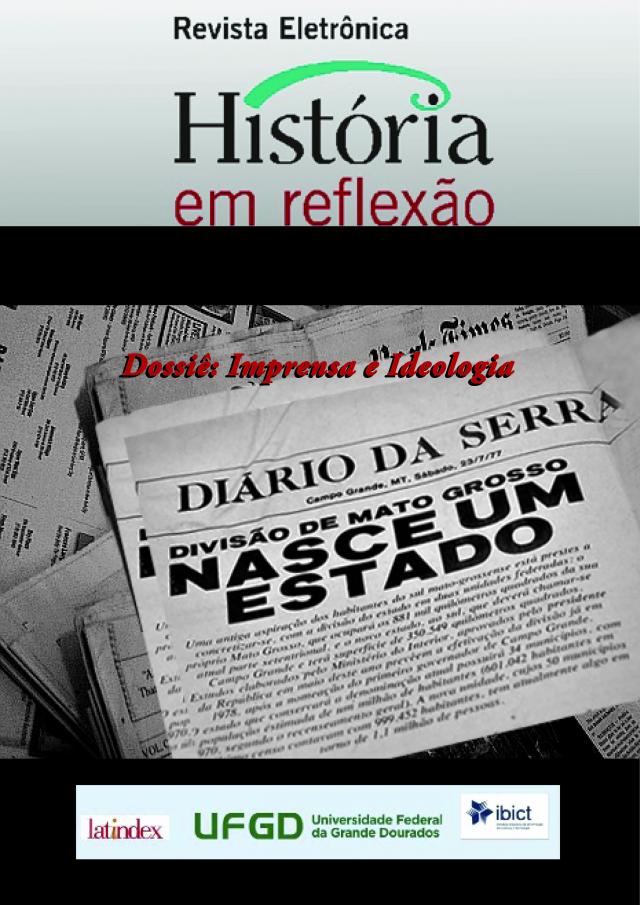Ricordi di famiglia: a memória familiar na escrita dos mercadores florentinos do Tre-Quattrocento
DOI:
https://doi.org/10.30612/rehr.v11i22.7953Palavras-chave:
Memórias familiares. Mercadores. Florença renascentista.Resumo
Os diários familiares escritos por mercadores florentinos do Tre-Quattrocento, chamados Ricordi ou Ricordanze, são uma documentação muito rica para o estudo dessa sociedade. Não somente por se tratar de uma tradição amplamente difundida ou pela diversidade de informações registradas – acontecimentos familiares, impressões pessoais, sentimentos, negócios e assuntos da vida pública –, mas também pela intenção desses mercadores de reconstruir a memória familiar e pela consciência que tinham da importância que o passado familiar exercia para o homem. Esses diários apresentam anotações precisas, de caráter informativo e de natureza prática, apelam à invocação religiosa e refletem a individualidade de cada mercador na forma e conteúdo dos registros. O artigo centra-se no estudo dessa documentação com a finalidade não só de ressaltar a sua importância, mas de considerar o desenvolvimento dessa prática, a intenção desses registros, as características da escrita e as particularidades de alguns desses mercadores escritoresDownloads
Referências
ALBERTI, Leon Battista. I libri della Famiglia. Torino: Einaudi, 1972.
BRANCA, Vittore. Merchant writers of the Renaissance: from Boccaccio to Lorenzo de’Medici. New York: Marsilio Publishers, 1999.
BRUCKER, Gene. Two memoirs of Renaissance Florence: the diaries of Buonaccorso Pitti & Gregorio Dati. Long Grove: Waveland Press, 1991.
CAMMAROSANO, Paolo. Italia medievale: struttura e geografia delle fonti scritte. Roma: Nuova Italia scientifica, 1991.
CASTELLANI, Francesco di Matteo. Ricordanze: ricordanze A (1436-1459). Florença: Olschki, 1992.
CIAPPELLI, Giovanni. Memory, family, and self: Tuscan family books and other European Egodocuments (14.th-18.th Century). Boston: Brill, 2014.
CICCHETTI, Angelo; MORDENTI, Raul. I libri di famiglia in Italia. Roma: Edizioni di storia e letteratura, 1985. v. 2.
CORSI, Giuseppe. Rimatori del Trecento. Turim: Utet, 1969.
DATI, Goro. I libri di famiglia e il libro segreto di Goro Dati. In: PANDIMIGLIO, Leonida (Org.). Alessandria: Edizione dell´orso, 2006.
FABBRI, Lorenzo. Alleanza Matrimoniale e Patriziato nella Firenze del ‘400: studio sulla famiglia Strozzi. Firenze: Leo S. Olschki, 1991.
MARTELLI, Ugolino di Niccolò. Ricordanze dal 1433 al 1483. Roma: Edizione di storia e letteratura, 1989.
MARTINES, Lauro. The social world of the Florentine Humanists: 1390-1460. Toronto: University of Toronto Press, 2011.
MORDENTI, Raul. Les livres de famille en Italie. In: HISTOIRE, SCIENCES SOCIALES. 59.e Année n. 4, table analytique 1999-2003. Annales… pp. 785-804, jul.-aug. 2004.
MORELLI, Giovanni. Ricordi. Florença: Le Monnier, 1956.
NICCOLINI, Lapo. Il Libro degli aff ari proprii di casa: de Lapo di Giovanni Niccolini de’ Sirigatti. Paris: S.E.V.P.E.N., 1969.
PEREZ FALLABRINO, Maria Verónica. A celebração do matrimônio na alta sociedade florentina do Quattrocento. São Paulo: Alameda, 2016.
PETRUCCI, Armando. Il libro di ricordanze dei Corsini (1362-1457). Roma: Istituto storico italiano per il Medioevo, 1965.
PITTI, Buonaccorso. Cronica di Buonaccorso Pitti. Bologna: Presso Romagnoli Dall´Acqua, 1905.
RICCI, Alessio. Mercanti scriventi: sintassi e testualità di alcuni libri di famiglia fiorentini fra Tre e Quattrocento. Roma: Aracne, 2005.
RUCELLAI, Giovanni. Giovanni Rucellai ed il suo Zibaldone: “il Zibaldone quaresimale” Londres: Warburg Institute, 1960.
SALVINI, Salvino. Prefazione. In: PITTI, Buonaccorso. (Org.). Cronica di Buonaccorso Pitti. Florença: Giuseppe Manni, 1720.
SOLERTI, Angelo. Autobiografi e e vite de´maggiori scrittori italini fino al secolo decimottavo narrate da contemporanei. Milão: Albrighi, Segati & C. Editori, 1903.
VELLUTI, Donato. La cronica domestica di messer Donato Velluti. Florença: Sansoni, 1914.
Downloads
Publicado
Como Citar
Edição
Seção
Licença
Os autores devem aceitar as normas de publicação ao submeterem a revista, bem como, concordam com os seguintes termos:
(a) O Conselho Editorial se reserva ao direito de efetuar, nos originais, alterações da Língua portuguesa para se manter o padrão culto da língua, respeitando, porém, o estilo dos autores.
(b) Autores mantém os direitos autorais e concedem à revista o direito de primeira publicação, com o trabalho simultaneamente licenciado sob a Atribuição-NãoComercial-CompartilhaIgual 3.0 Brasil (CC BY-NC-SA 3.0 BR) que permite: Compartilhar — copiar e redistribuir o material em qualquer suporte ou formato e Adaptar — remixar, transformar, e criar a partir do material.
A CC BY-NC-SA 3.0 BR considera os termos seguintes:
- Atribuição: Você deve dar o crédito apropriado, prover um link para a licença e indicar se mudanças foram feitas. Você deve fazê-lo em qualquer circunstância razoável, mas de nenhuma maneira que sugira que o licenciante apoia você ou o seu uso.
- NãoComercial: Você não pode usar o material para fins comerciais.
- CompartilhaIgual: Se você remixar, transformar, ou criar a partir do material, tem de distribuir as suas contribuições sob a mesma licença que o original.
- Sem restrições adicionais: Você não pode aplicar termos jurídicos ou medidas de caráter tecnológico que restrinjam legalmente outros de fazerem algo que a licença permita.



